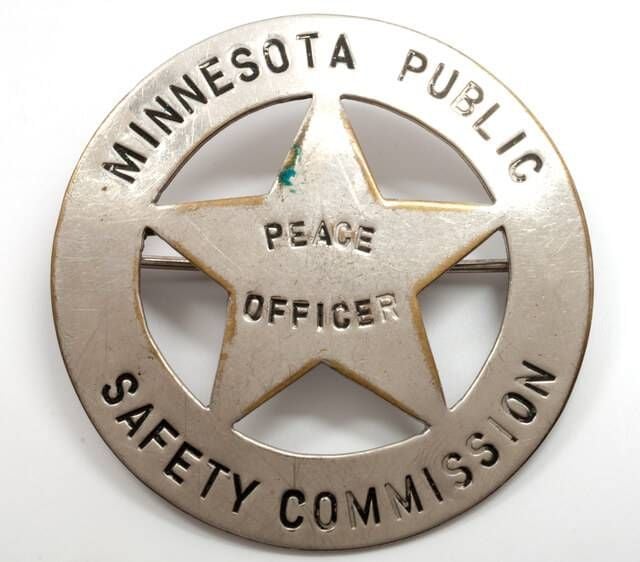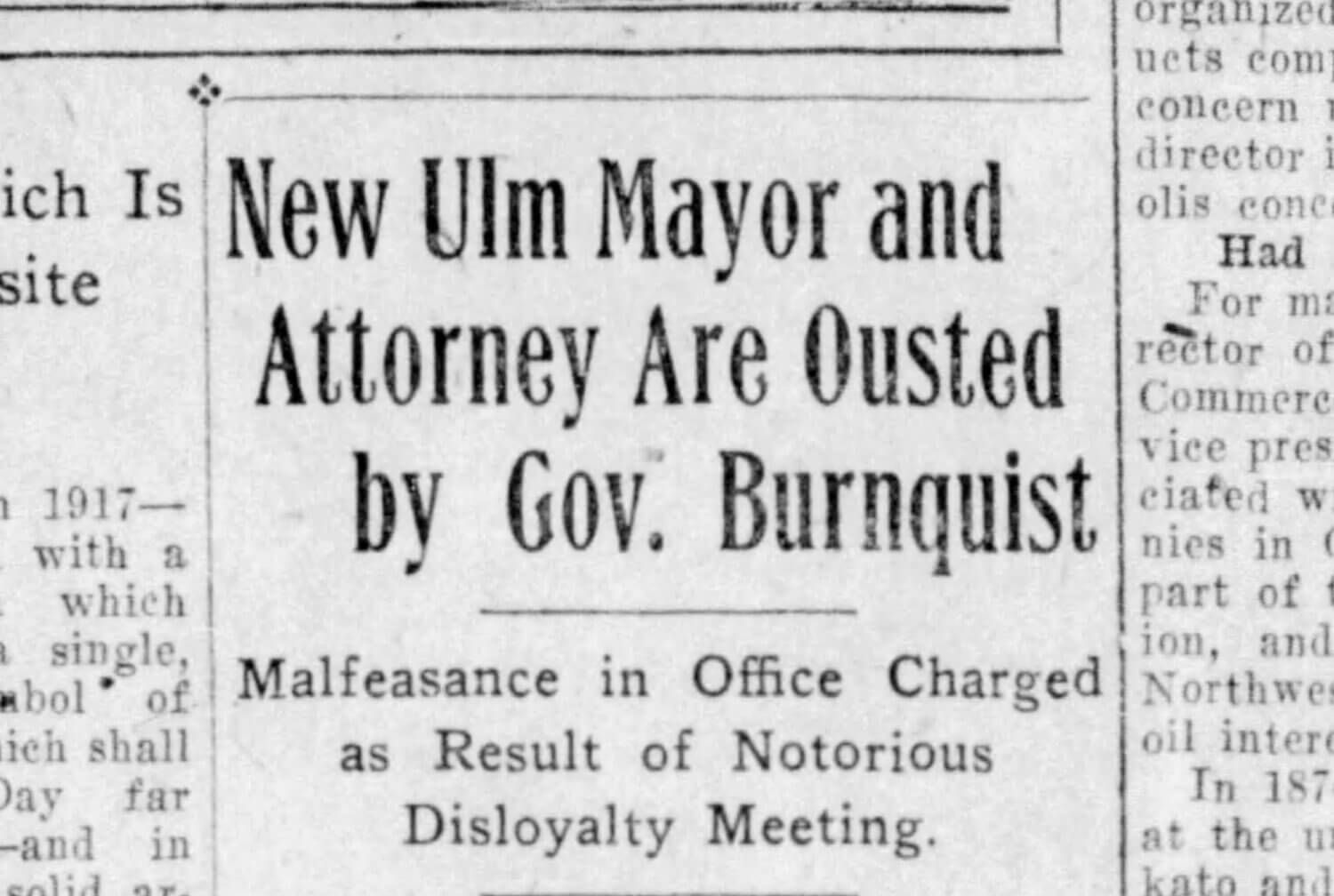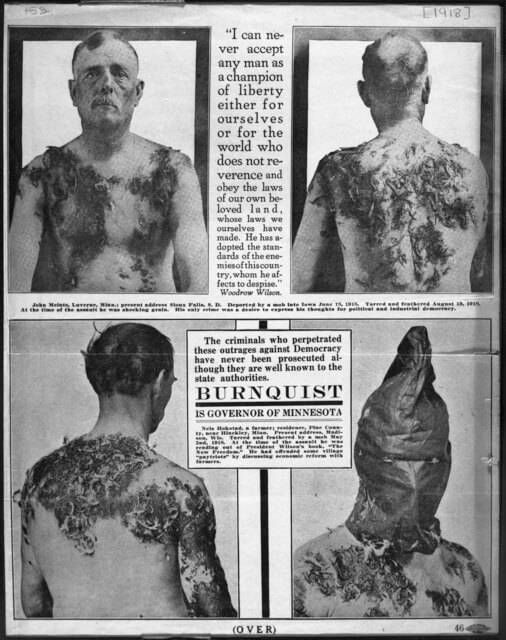Worried about democracy? A tough lesson on protecting freedom from WWI.
100 years ago, the MN Commission of Public Safety was a harsh 'watchdog of loyalty.'
Throughout the state’s history, Minnesota has shown a certain earnestness during national emergencies. Minnesota was the first state to offer up Union troops at the beginning of the Civil War; a Saint Paul-heavy crew aboard the USS Ward fired on the Japanese fleet even BEFORE the first bombs dropped at Pearl Harbor; and at the onset of America’s involvement in World War I in 1917, Minnesota rushed to embrace federal guidance on domestic wartime commitment and vigilance.

Along with Governor Burnquist, lawmakers enacted legislation that created and empowered the Minnesota Commission of Public Safety. The MCPS served some useful purposes in the war effort, including food conservation and a motor corps for transporting troops that also helped during the devastating fires of 1918. However, history suggests that the North Star State might have been a bit too eager in pushing Minnesotans to back the war effort as some of the tactics and uses of power hint at martial law and an anti-democratic approach to using the government machine.
Also troubling was how partisan politics creeped into the MCPS’s enforcement of "patriotism" considering how labor and radical elements were often targeted by the conservative-led body.
Here are 10 steps the state took away from democracy during the draconian reign of the MN Commission of Public Safety.
- Following a rally and speeches that questioned draft policy, New Ulm Mayor Louis Fritsche and his city attorney were suspended from office for 'disloyalty' by the MCPS.

2. German language books and some novels were forbidden in the public schools of Minnesota.
3. An Osseo farmer was arrested for making "insulting remarks about the stars and stripes."
4. University of Minnesota faculty member was dismissed for disloyalty.
5. A member of MCPS is quoted as saying a city official who critiqued the war effort should be shot.
6. The MCPS and its militia are said to have supported goons who attacked radicals at rallies and labor demonstrations.

7. The MCPS demanded that striking transit workers "comply" with their orders forbidding them from wearing buttons declaring their association with labor movements.
8. Bars and saloons were closed, some stormed by the MCPS-created Home Guard, while many Minnesotans questioned the connection to the war effort.
9. "Friendly aliens" are required to register themselves or face unstated consequences.
10. The MCPS, led by conservatives, branded the progressive Nonpartisan League as "disloyal" and incited harassment of its gubernatorial candidate, Charles Lindberg Sr. (father of the legendary aviator), who was then egged, shot at, arrested and hanged in effigy.
The Commission was ended during the legislative session 100 years ago this April, following the armistice of the previous fall. Like other grave chapters in history, we have largely avoided making this era mainstream in our education and political discourse. But the way constitutional rights and American freedoms were threatened is a useful lesson for our current political climate.
More on the Minnesota Public Safety Commission at MNOpedia.
Images provided by the Minnesota Historical Society and the Star Tribune.

This story is made possible by the Arts and Cultural Heritage Fund and the citizens of Minnesota.
